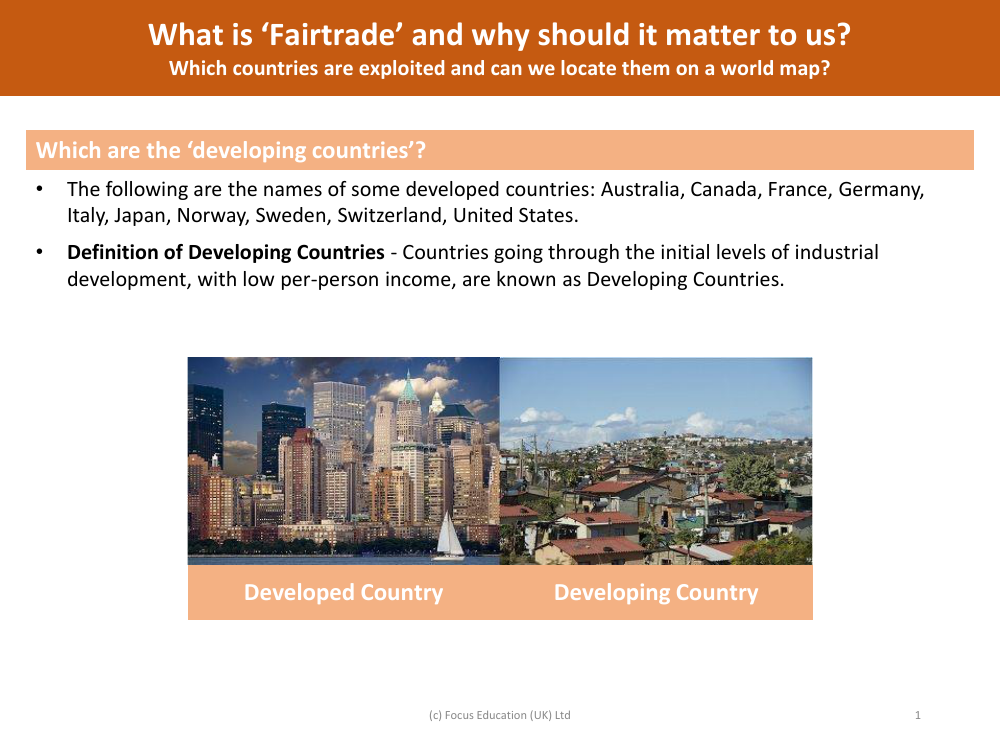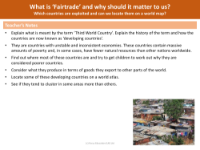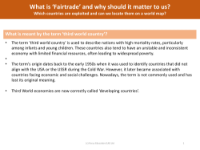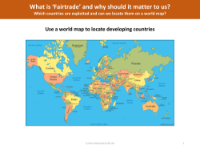Developing countries - Info sheet

Geography Resource Description
Developing countries are nations identified by their stage of industrial development and economic indicators. These countries are characterized by lower levels of industrial activity, infrastructure, and per capita income compared to developed nations. A list of some developed countries includes Australia, Canada, France, Germany, Italy, Japan, Norway, Sweden, Switzerland, and the United States, which contrasts with the developing nations. Developing countries make up a significant portion of the global population, with 152 countries accounting for approximately 85.33% of the world's inhabitants. These countries are spread across regions such as Central and South America, Africa, Asia, and include various island nations. Examples of developing countries with their respective populations include Argentina with 45.8 million people, Brazil with 214.0 million, Bangladesh with 166.3 million, Chile with 19.2 million, Egypt with 104.3 million, and Nigeria with 211.4 million. Additionally, countries with very low per-person income, like Burundi, Central African Republic, Chad, Republic of Congo, Ethiopia, Guinea, Mozambique, and Zimbabwe, are also considered developing countries.
'Fairtrade' is an important concept that advocates for better trading conditions and promotes sustainability for producers in developing countries. It ensures that farmers and workers receive fair prices, decent working conditions, and fair terms of trade, allowing them to enjoy secure and sustainable livelihoods. Fairtrade matters because it addresses issues of exploitation and inequality in the global market, particularly in developing countries where economic disadvantages are prevalent. By supporting Fairtrade, consumers can contribute to the fight against poverty, child labor, and environmental degradation. Identifying which countries are exploited and understanding their geographical location on a world map can raise awareness and encourage informed decisions that support ethical consumerism and contribute to positive change in the global economy.





